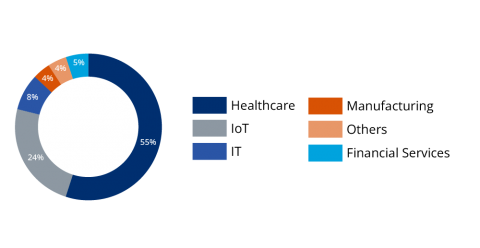Security | Threat Detection | Cyberattacks | DevSecOps | Compliance
Vulnerability
Russian-linked malware cyberattacks: what you need to know about Hermetic Wiper and Cyclops Blink
Just days after Russia launched its invasion against the people of Ukraine, news reports emerged of several cyberattacks. Deployed systematically ahead of the land invasion, Russian cyberattacks against Ukraine have rendered Ukrainian banks, government departments and other core services unavailable through the use of sophisticated ‘data wipers
PROPHET SPIDER Exploits Citrix ShareFile Remote Code Execution Vulnerability CVE-2021-22941 to Deliver Webshell
At the start of 2022, CrowdStrike Intelligence and CrowdStrike Services investigated an incident in which PROPHET SPIDER exploited CVE-2021-22941 — a remote code execution (RCE) vulnerability impacting Citrix ShareFile Storage Zones Controller — to compromise a Microsoft Internet Information Services (IIS) web server. The adversary exploited the vulnerability to deploy a webshell that enabled the downloading of additional tools.
New Supply Chain Vulnerabilities Impact Medical and IoT Devices
Forescout’s Vedere Labs, in partnership with CyberMDX, have discovered a set of seven new vulnerabilities affecting PTC’s Axeda agent, which we are collectively calling Access:7. Three of the vulnerabilities were rated critical by CISA, as they could enable hackers to remotely execute malicious code and take full control of devices, access sensitive data or alter configurations in impacted devices.
The State of Cybersecurity in 2022
JFrog Discloses 5 Memory Corruption Vulnerabilities in PJSIP - A Popular Multimedia Library
JFrog’s Security Research team is constantly looking for new and previously unknown security vulnerabilities in popular open-source projects to help improve their security posture. As part of this effort, we recently discovered 5 security vulnerabilities in PJSIP, a widely used open-source multimedia communication library developed by Teluu. By triggering these newly discovered vulnerabilities, an attacker can cause arbitrary code execution in the application that uses the PJSIP library.
Feroot Security Raises $11 Million to Protect Against Website App Vulnerabilities
How to secure web apps continuously with Pen Testing as a Service
Web applications are continuously evolving due to the hypo-velocity of code changes and stream of new features and functionality leaving businesses exposed to application security risks. A new wave of automated pen testing conducted through a software as a service delivery model can help reduce this risk by providing automated vulnerability findings in real time.











